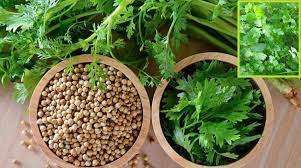In the winter, a lot of individuals avoid eating curd because they believe it will increase their risk of getting a cold or a cough. In the winter, especially at night, parents ban kids from eating curd.
Yogurt is a beneficial probiotic that has a high protein content, many vitamins, and few carbohydrates. It can be consumed with food in the forms of raita, curd, or buttermilk, all of which improve the flavor of the food. However, a lot of people refrain from consuming curd throughout the winter because they believe it may cause them a cold or a cough. In the winter, especially at night, parents ban kids from eating curd. But is consuming curd in chilly weather actually harmful? We have the answer to this query as of right now.
Yogurt is packed with nutrients, healthy bacteria, including lactobacillus acidophilus, lactococcus lactis, lactococcus lactis cremoris, and others, as well as high-quality proteins. It also includes calcium, magnesium, potassium, vitamin B2 and B12 in addition to these. There are many myths associated with curd, today we are talking about them.
Myth 1: Consuming curd in the winter might make you cold and cough
Facts: Since curd contains probiotics and vitamins that strengthen the immune system in any season, it is a great food to take during the winter. In the winter, though, you must always eat them according to room temperature.
Myth 2: Curd should be avoided by lactating women since it can make both the mother and the kid sick.
Facts: This is untrue. Due to the mother’s milk’s high immunoglobulin content, the baby will only receive nutrients from it and will not catch a cold or an illness. Yogurt contains live bacteria that aid in digestion, fight off pathogens, and maintain gut health. Lactobacillus, as well as vitamins and proteins that strengthen your immune system, are abundant in yogurt. Lactating women can take raita or curd rice to fulfill their calcium and protein needs.
Myth 3: Children should avoid eating curd in winter.
Facts: Curd promotes WBC synthesis, functions as a powerful immune booster, and has anti-inflammatory qualities. So, encourage kids to eat curd in any form as long as it’s at room temperature and not straight from the fridge.
Myth 4: Avoid yogurt if trying to lose weight.
Facts: This is untrue. The consumption of good fatty acids is crucial for weight loss. Consuming yogurt prepared from skim milk or low-fat milk won’t make you fatter or increase your intake of saturated fat. Curd is the perfect food to include in a weight loss plan because it is also high in calcium, vitamin D, potassium, and protein.




